Well, that was dark.
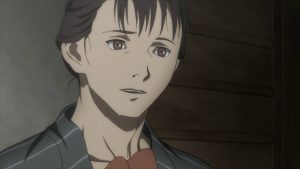 We see a lot of manga and anime set in Japan’s distant past, obviously and for obvious reasons. History is always a tempting canvas, and there are countless remarkable stories that can be riffed on to create a fictionalized version that’s compelling. There’s also something especially seductive about the tale of the samurai, figures quite unique in the annals of legend and evoking both a romance for a forgotten age and a disquiet about how brutal that age (and they) were. In Mishima Yukio we’ve certainly seen what happens when this fascination plays out to its ultimate extreme, but even in the wake of that tragedy the Japanese obsession for Bushido has never waned.
We see a lot of manga and anime set in Japan’s distant past, obviously and for obvious reasons. History is always a tempting canvas, and there are countless remarkable stories that can be riffed on to create a fictionalized version that’s compelling. There’s also something especially seductive about the tale of the samurai, figures quite unique in the annals of legend and evoking both a romance for a forgotten age and a disquiet about how brutal that age (and they) were. In Mishima Yukio we’ve certainly seen what happens when this fascination plays out to its ultimate extreme, but even in the wake of that tragedy the Japanese obsession for Bushido has never waned.
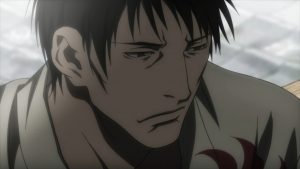 While there are huge differences between the Sengoku and the Meiji, for example – and something in-between, like this setting – we see a lot of common themes in these types of stories. The brutality of existence in such times is not dramatic embellishment of poetic license – that’s just how life was. Even for samurai it was a violent and usually brief existence; for commoners, a trial which had no beginning and no end. Just how, exactly, is someone supposed to live by any sort of moral code in such a world? If you wanted to survive, you had to be ruthless – and strong.
While there are huge differences between the Sengoku and the Meiji, for example – and something in-between, like this setting – we see a lot of common themes in these types of stories. The brutality of existence in such times is not dramatic embellishment of poetic license – that’s just how life was. Even for samurai it was a violent and usually brief existence; for commoners, a trial which had no beginning and no end. Just how, exactly, is someone supposed to live by any sort of moral code in such a world? If you wanted to survive, you had to be ruthless – and strong.
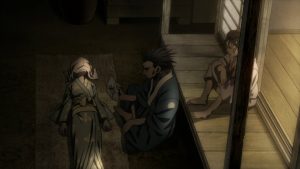 We really see this play out with the story of the Mugai-ryuu, the “rogues” who become allies of the moment for Rin and Manji. We still don’t know much about them, and their spokeswoman if not leader Hyakurin (Hayashi Marika) isn’t entirely forthcoming even when Manji immediately susses out that she’s hiding the truth from him. Why they have it in for the Itou-ryuu, what the mysterious disease she suffers from is, where they came from and who their highly-placed backer is – Hyakurin isn’t telling and Manji isn’t willing to walk away at this point. A marriage of convenience it may be, but a powerful ally is not to be sneezed at. And the one thing that’s clear about these people is that they’re powerful.
We really see this play out with the story of the Mugai-ryuu, the “rogues” who become allies of the moment for Rin and Manji. We still don’t know much about them, and their spokeswoman if not leader Hyakurin (Hayashi Marika) isn’t entirely forthcoming even when Manji immediately susses out that she’s hiding the truth from him. Why they have it in for the Itou-ryuu, what the mysterious disease she suffers from is, where they came from and who their highly-placed backer is – Hyakurin isn’t telling and Manji isn’t willing to walk away at this point. A marriage of convenience it may be, but a powerful ally is not to be sneezed at. And the one thing that’s clear about these people is that they’re powerful.
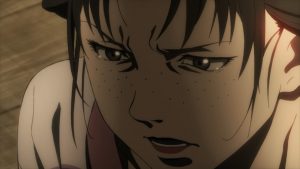 I can understand why Rin would be drawn in by Shira, though she realizes (though not the full extent) the sort of man he is. In order to do what she thinks she needs to do – avenge her parents – she has to get stronger. And that’s what she needs for what she wants to do, too – to stop being a burden on Maanji-san, who she’s fallen in love with. This is the paradox of the time and place – in order to pursue what she believes are worthwhile ends she has to consort with evil. She’s able to convince herself that observing Shira has given her a new sense of resolve.
I can understand why Rin would be drawn in by Shira, though she realizes (though not the full extent) the sort of man he is. In order to do what she thinks she needs to do – avenge her parents – she has to get stronger. And that’s what she needs for what she wants to do, too – to stop being a burden on Maanji-san, who she’s fallen in love with. This is the paradox of the time and place – in order to pursue what she believes are worthwhile ends she has to consort with evil. She’s able to convince herself that observing Shira has given her a new sense of resolve.
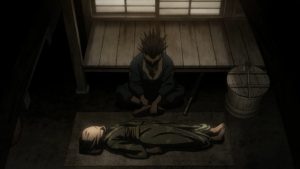 Why is this man an ally worth having – are the Ittou-ryuu and what they’ve done enough of a reason? Are they worse than any other sword school, or is this all totally personal for Rin? Kagehisa’s plan to escape Edo for Kaga undetected is ruthless enough, to be sure, but he probably did genuinely expect the followers he sent out as bait to be deemed not worth killing. And even if he didn’t, does sending them – all of them voluntarily – make him worse that Shira? The man is clearly a psychopath, and whatever his presence in the Mugai-ryuu says about the group as a whole it isn’t good.
Why is this man an ally worth having – are the Ittou-ryuu and what they’ve done enough of a reason? Are they worse than any other sword school, or is this all totally personal for Rin? Kagehisa’s plan to escape Edo for Kaga undetected is ruthless enough, to be sure, but he probably did genuinely expect the followers he sent out as bait to be deemed not worth killing. And even if he didn’t, does sending them – all of them voluntarily – make him worse that Shira? The man is clearly a psychopath, and whatever his presence in the Mugai-ryuu says about the group as a whole it isn’t good.
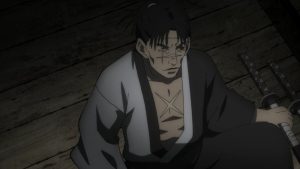 The cruelty of the situation gives the knife a final twist when Rin finally reaches her limit and decides that common enemy or no, she can take no more. Her rebellion against Shira is an act of futility – if Manji hadn’t arrived at exactly the right moment to save her (which is becoming a bit too much of a coming occurrence) Shira surely would have ended her. There’s simply no place for idealism in this world, and if there’s a way this entire turn of events doesn’t cause Rin’s beliefs to be shaken to their very core, I don’t know what will.
The cruelty of the situation gives the knife a final twist when Rin finally reaches her limit and decides that common enemy or no, she can take no more. Her rebellion against Shira is an act of futility – if Manji hadn’t arrived at exactly the right moment to save her (which is becoming a bit too much of a coming occurrence) Shira surely would have ended her. There’s simply no place for idealism in this world, and if there’s a way this entire turn of events doesn’t cause Rin’s beliefs to be shaken to their very core, I don’t know what will.


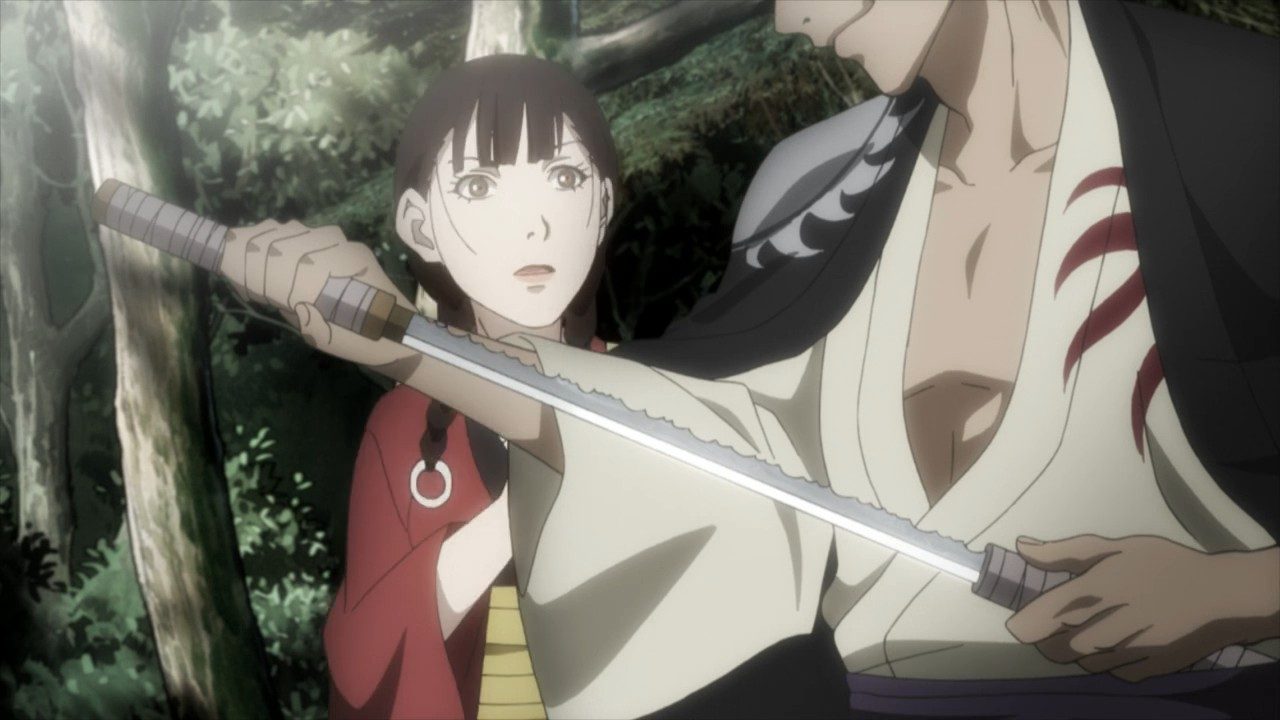
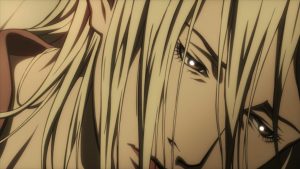
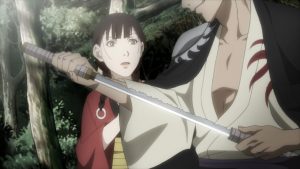
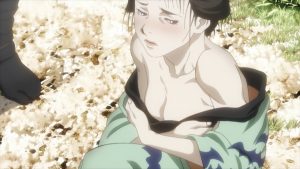
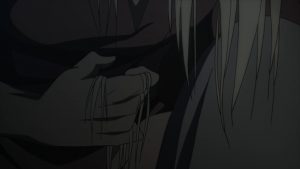
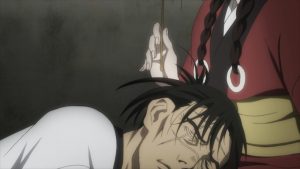
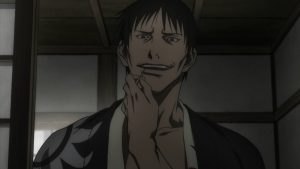
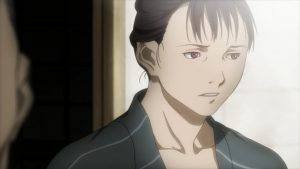
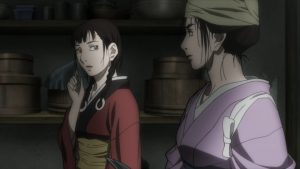
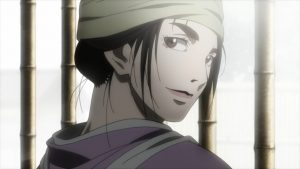
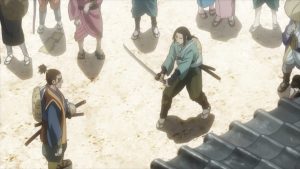
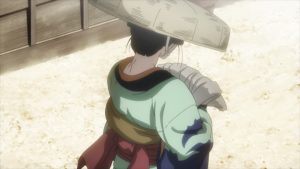
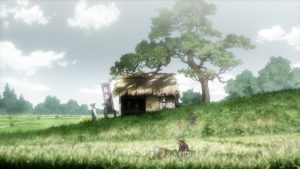
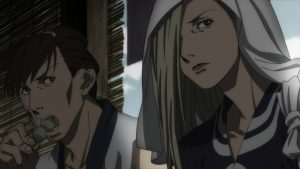
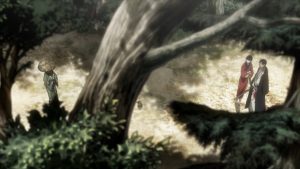
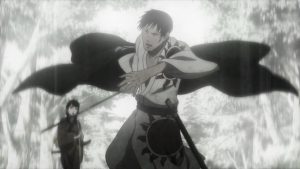
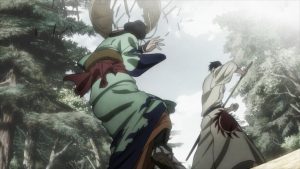
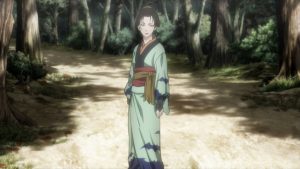
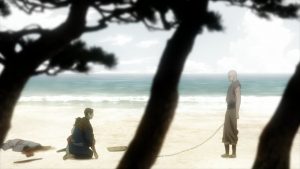
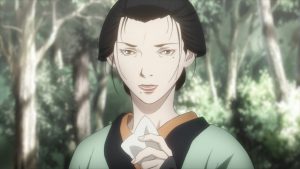
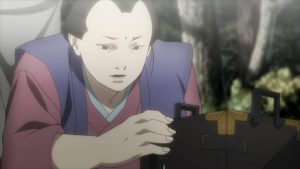
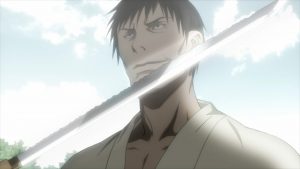
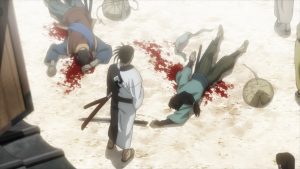
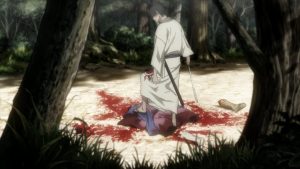
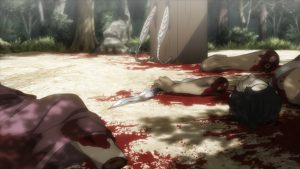
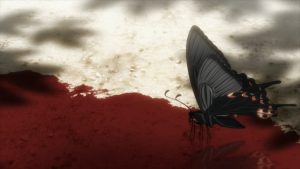
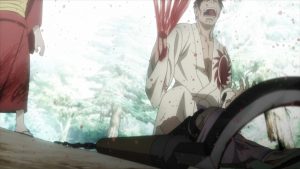
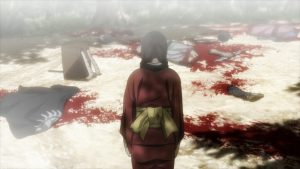
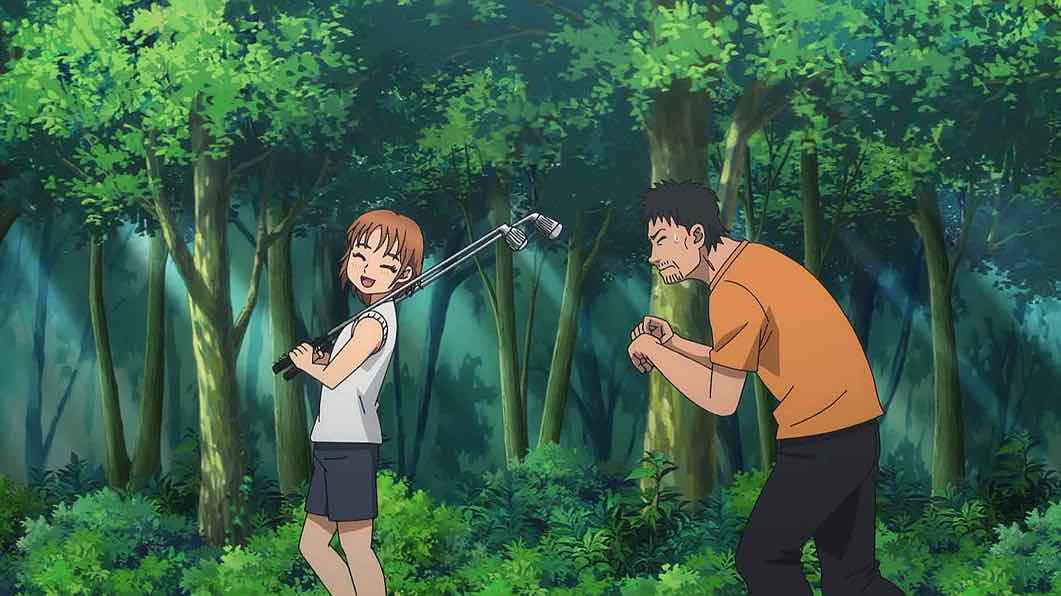
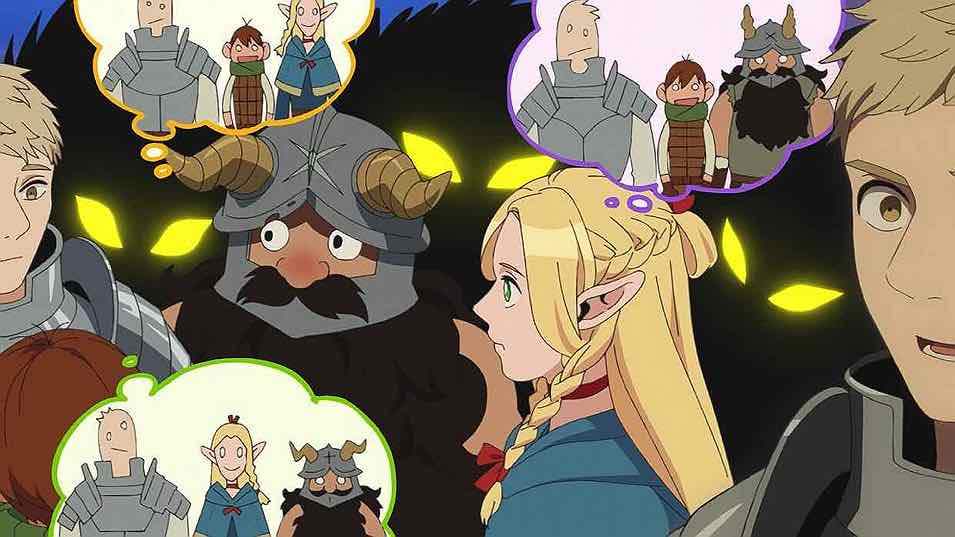
Onix Franceschini
November 22, 2019 at 3:13 amBrutal episode. Genuinely turned away from the screen a few times… I wonder where these events will take the story now.
Amarantine
November 22, 2019 at 7:38 pm“The brutality of existence in such times is not dramatic embellishment of poetic license – that’s just how life was.”
Well said. I’ve seen a few viewers criticize this show for resorting to shock value with its depiction of graphic violence, but I would say they’re underestimating just how brutal the time and place the story takes place in were, and that the original author and anime staff are just trying to portray that reality accurately (while telling an interesting story, of course). Though naturally I get that a show with content this dark is not for everyone, but well, that’s what the warning at the beginning of each episode is there for. :p